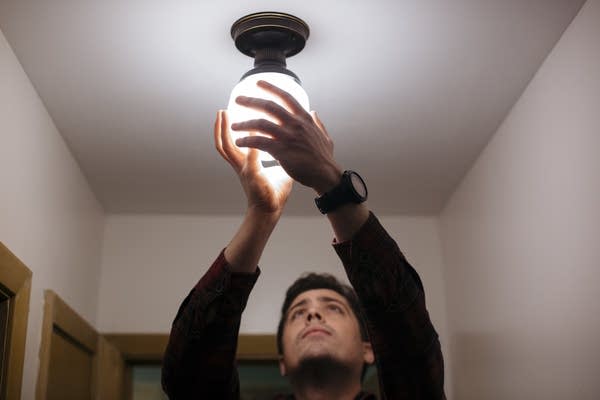Want to save on your utility bill? This Minn. nonprofit has some tips

This week alone, the Citizens Utility Board of Minnesota will help utility customers in a variety of settings: at Target headquarters, at the Minnesota Farmers Union convention and at Bruce Vento Elementary School in St. Paul during parent-teacher conferences.
"We really try to go where people are, and make it as convenient as possible," said Carmen Carruthers, the nonprofit's outreach director. The group also holds sessions at churches, apartment complexes and by phone, at call-in events. It's all part of their effort to help Minnesotans reduce energy use — and save money, while they're doing it.
The group has made contact with several thousand Minnesotans in the past few years, Carruthers said, and hundreds of people have received one-on-one attention in free 20-minute utility bill consultations with an expert.

"We ask a lot of questions to get an idea of how their household operates, but the first question we ask is what do you want to talk about today?" she said. "Sometimes they want to save money, sometimes they are just interested — are they doing OK? Could they do better? Some people want to talk about what renewable options they could consider for their household."
Create a More Connected Minnesota
MPR News is your trusted resource for the news you need. With your support, MPR News brings accessible, courageous journalism and authentic conversation to everyone - free of paywalls and barriers. Your gift makes a difference.
People who rent apartments have different options than homeowners, so staff take those factors into account, she said.
"We give people specific advice based on their household characteristics to try to reduce their energy usage, environmental impact, save them some money," she said. "We've found we have real impact for people."
Want to analyze your own utility bill? Carruthers shared some of the questions the Citizens Utility Board's experts walk through during their consultations. The answers include just some of the tips the group offers to save energy and money on your next bill.
What type of place do you live in, and do you own it?
Homeowners have more options for reducing energy use because they're responsible for everything from insulation to appliances to replacing a furnace or boiler.
But there are still plenty of things renters can do to reduce energy use, such as changing light bulbs and turning off lights and gadgets when not in use.
Another important factor is the square footage of the home, and whether it's a single family house or attached to other units, as in a townhouse or apartment building.
Is your water heater set to 120 degrees F?
Homeowners can save money by adjusting their water heaters down. And adding low-flow shower heads or faucets can also help save energy, because the water heater is heating up smaller volumes of water.
Washing clothes in cold water is another way to save on water heating.
Do you adjust your thermostat to save energy on heating and air conditioning when you're not at home?
Because half of people's energy use goes into heating and cooling, this can be a big energy saver.
Sometimes it takes some experimentation to figure out the best way to manage this. For example, if you have a boiler, it takes longer for the system to respond to changes. But if you're not home for long stretches of time, turning the heat down can save money.
Is your heating bill higher than it should be?
This is a common question with a complicated answer.
The first thing to consider is how often you're home, and whether you could turn down the thermostat. But an analysis of your utility bill might still find that you use a lot of energy when compared to the size home you have, so an expert would then ask if it feels drafty.
Replacing windows generally doesn't pay off in energy savings, but adding insulation sometimes can.
An energy audit can help people figure out what makes the most sense. And there are other little things that can help, such as putting plastic over windows in the winter to keep the cold air out.
Is your furnace or water heater due for an upgrade?
If the answer is yes, there are a few things that might be helpful to know.
For instance: Utilities in Minnesota participate in rebate programs, so when consumers need a new furnace or water heater, there's often rebate money available to reduce the cost. And utility customers pay for some of these programs on their bills, so they're able to get some of it back when they invest in energy efficiency upgrades.